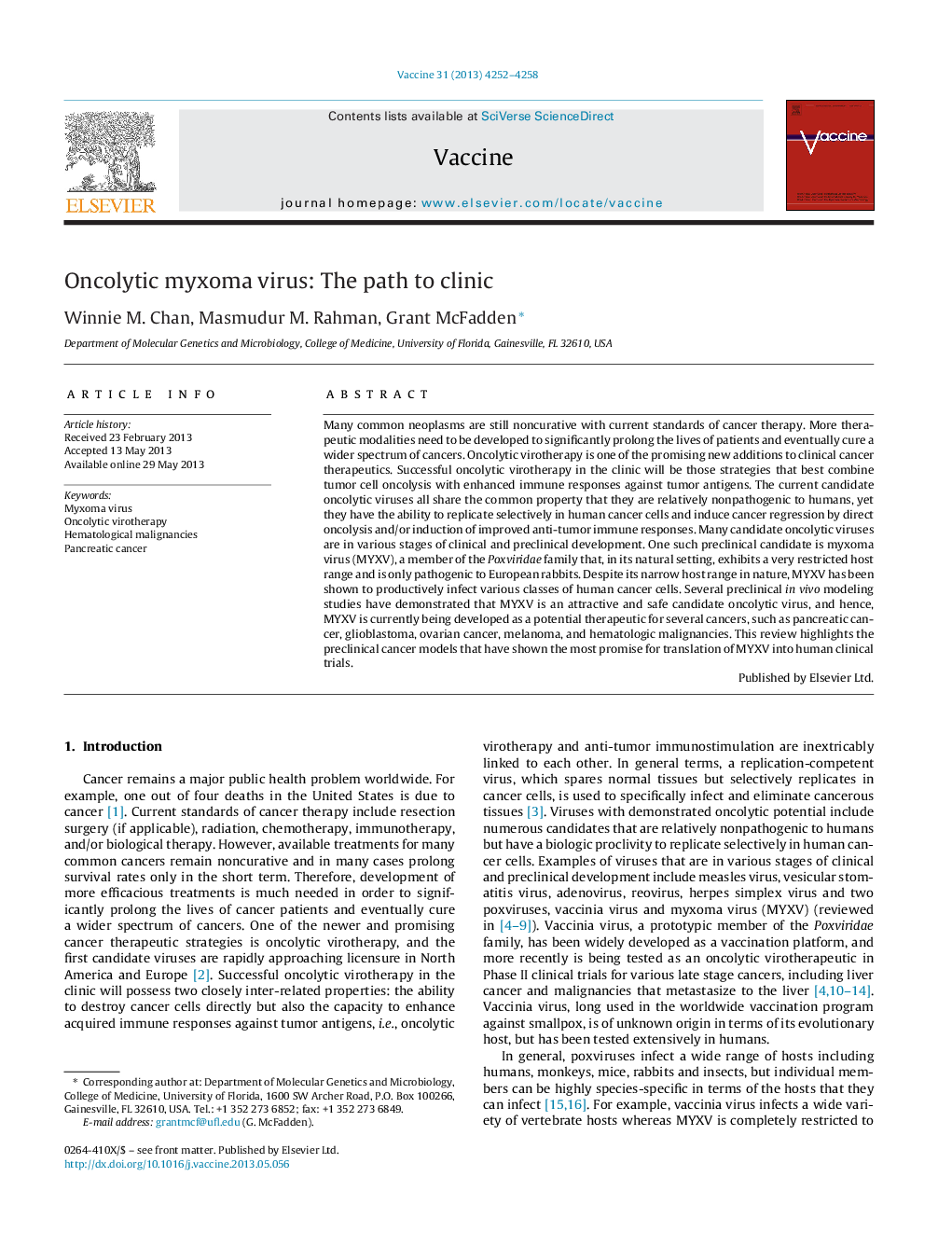| Article ID | Journal | Published Year | Pages | File Type |
|---|---|---|---|---|
| 2402317 | Vaccine | 2013 | 7 Pages |
•MYXV is a candidate oncolytic virus with varying efficacies of oncolytic properties.•MYXV productively infects many classes of human cancer cells.•MYXV discriminates cancerous human myeloid cells from the normal CD34+ stem cells.•MYXV is an attractive ex vivo purging agent candidate for hematological malignancies.•MYXV possesses significant oncolytic potential for pancreatic cancer and gliomas.
Many common neoplasms are still noncurative with current standards of cancer therapy. More therapeutic modalities need to be developed to significantly prolong the lives of patients and eventually cure a wider spectrum of cancers. Oncolytic virotherapy is one of the promising new additions to clinical cancer therapeutics. Successful oncolytic virotherapy in the clinic will be those strategies that best combine tumor cell oncolysis with enhanced immune responses against tumor antigens. The current candidate oncolytic viruses all share the common property that they are relatively nonpathogenic to humans, yet they have the ability to replicate selectively in human cancer cells and induce cancer regression by direct oncolysis and/or induction of improved anti-tumor immune responses. Many candidate oncolytic viruses are in various stages of clinical and preclinical development. One such preclinical candidate is myxoma virus (MYXV), a member of the Poxviridae family that, in its natural setting, exhibits a very restricted host range and is only pathogenic to European rabbits. Despite its narrow host range in nature, MYXV has been shown to productively infect various classes of human cancer cells. Several preclinical in vivo modeling studies have demonstrated that MYXV is an attractive and safe candidate oncolytic virus, and hence, MYXV is currently being developed as a potential therapeutic for several cancers, such as pancreatic cancer, glioblastoma, ovarian cancer, melanoma, and hematologic malignancies. This review highlights the preclinical cancer models that have shown the most promise for translation of MYXV into human clinical trials.
